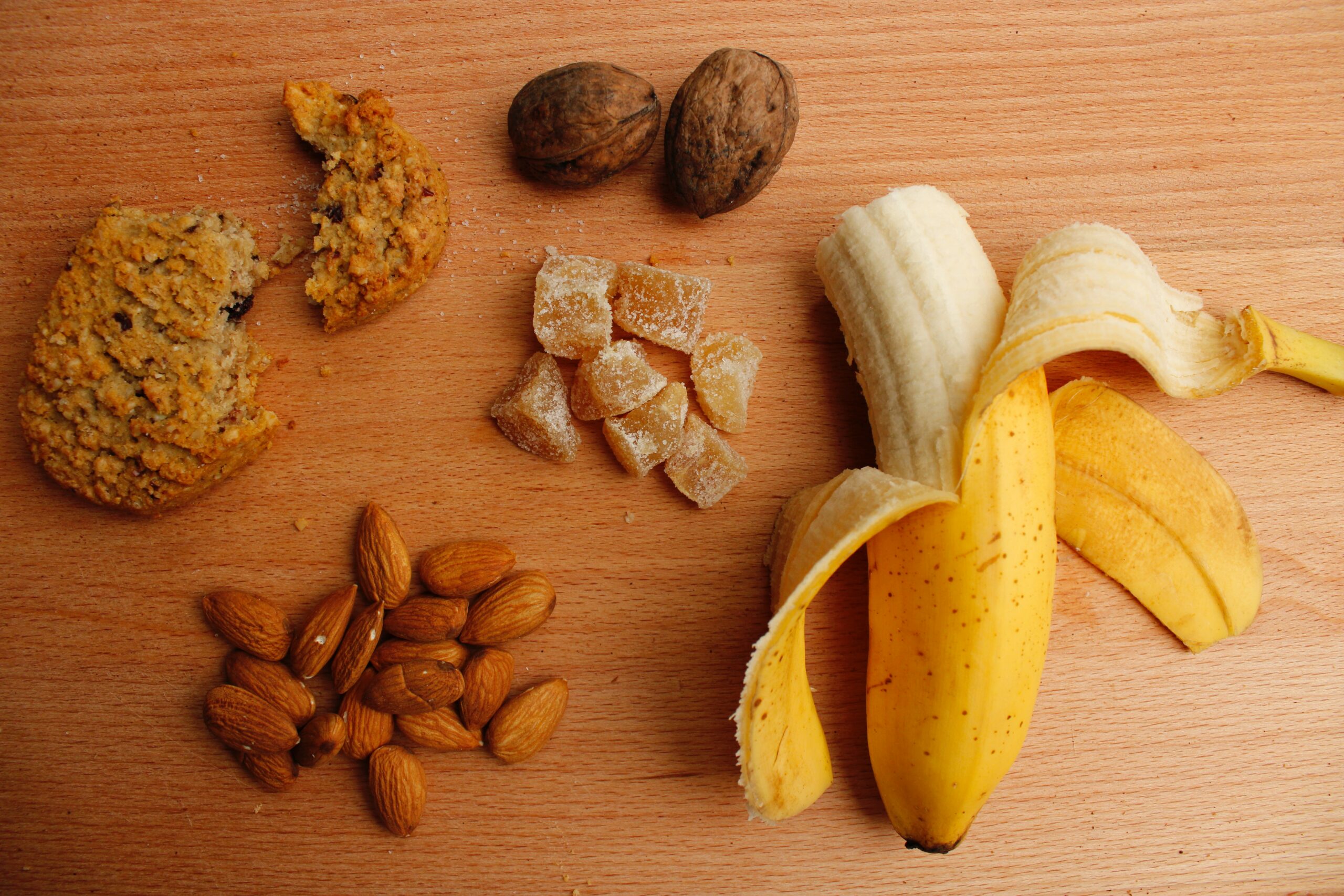Do you want to know what foods contain carbohydrates? While carbohydrates are the main energy source for the body, not all foods are created equal when it comes to their carbohydrate content. Discover some of the most common foods that contain carbs and learn why these sources can be integral to a healthy diet.
What is The Monomer of Carbohydrates?
Carbohydrates are found in a wide variety of foods, including fruits, vegetables, grains, and dairy products. They are a primary source of energy for the body and should make up a significant portion of your daily caloric intake. Some common foods that contain carbohydrates are bread, pasta, rice, potatoes, beans, and pastries. Fruits such as apples, bananas, and oranges also contain carbohydrates, as do starchy vegetables such as corn and peas. Dairy products like milk and yogurt provide carbohydrates in the form of lactose.
While carbohydrates are an essential macronutrient, it’s important to choose healthy, complex carbs over simple sugars to maintain a balanced diet. Pro tip: Look for whole-grain options and prioritize fresh fruits and vegetables when selecting carbohydrate-rich foods.
What Are Carbohydrates?
Carbohydrates are one of the essential macronutrients that our body needs for energy production, and they are found in many common foods that we consume daily.
Here are some examples of foods containing carbohydrates:
| Bread: | All types of bread, including white, wheat, and whole-grain bread, are rich in carbohydrates. |
| Pasta: | Pasta is a carb-packed food, and options like spaghetti, macaroni, and fettuccine contain a significant amount of carbohydrates. |
| Rice: | Rice is a staple food for many people and is rich in carbohydrates, with white rice being higher in carbs and brown rice being a healthier option. |
| Fruits: | Almost all fruits contain carbohydrates, with some of the highest carb fruit options being bananas, grapes, and mangoes. |
| Vegetables: | Vegetables like potatoes, corn, and peas are high in carbs, and other vegetables like broccoli, cauliflower, and spinach are lower in carbs. |
It is essential to be aware of the carbohydrate content in your food to maintain a balanced and healthy diet.
The Monomer of Carbohydrates
Carbohydrates are one of the essential nutrient groups that provide the body with energy. The monomer of carbohydrates is a simple sugar molecule, also known as a monosaccharide. Common foods that contain carbohydrates include grains, fruits, vegetables, and dairy products.
| Grains | Fruits and Vegetables | Dairy Products |
| Rice, wheat, oats, and barley are staple grains that are rich in carbohydrates. These grains are used to make a variety of foods such as bread, pasta, cereals, and flour-based products. | Bananas, apples, oranges, carrots, potatoes, and corn are some examples of fruits and vegetables that are high in carbohydrates. These foods are an excellent source of fiber, vitamins, and minerals. | Milk, yogurt, and cheese are dairy products that contain carbohydrates in the form of lactose. These foods also provide protein and calcium to the body, making them a valuable part of the diet. |
Consuming a well-balanced diet that includes these carbohydrate-rich foods can help maintain energy levels, regulate blood sugar, and promote overall health.
Pro Tip: Pairing carbohydrates with protein and healthy fats can help keep you feeling fuller longer and prevent blood sugar crashes.

Common Foods Containing Carbohydrates
Carbohydrates are found in a wide variety of foods, from fruits and vegetables to grains and dairy products. Here are some common foods that contain carbohydrates:
| Fruits: | Apples, bananas, oranges, grapes, berries, mangoes, pineapples, etc. are all high in carbohydrates. |
| Vegetables: | Most vegetables contain carbohydrates, with some of the highest levels found in potatoes, sweet potatoes, corn, carrots, and peas. |
| Grains: | Bread, pasta, rice, cereal, oats, crackers, and other grain-based products are all rich in carbohydrates. |
| Legumes: | Beans, lentils, chickpeas, and peas contain a significant amount of carbohydrates, making them an excellent source of fiber and protein. |
| Dairy: | Milk, yogurt, and other dairy products contain carbohydrates in the form of lactose, a type of sugar found in milk. |
| Sweets: | Candies, cookies, cakes, and other sweet treats are high in carbohydrates and added sugars. |
By including a variety of these foods in your diet, you can ensure that you’re getting the carbohydrates your body needs to function properly.
Pro tip: Opt for complex carbohydrates like whole grains and fibrous vegetables instead of simple carbohydrates found in processed foods for better health.
Complex Carbohydrates
Complex carbohydrates are an essential nutrient for our bodies, providing us with a steady source of energy throughout the day. Many foods contain carbohydrates, but some are more complex than others, meaning they take longer to digest and provide a more sustained supply of energy.
| Food | Description |
| Whole-grain bread and pasta | These foods are made from whole grain flour and contain the entire grain, including the germ, bran, and endosperm. They provide us with fiber, vitamins, and minerals, along with complex carbohydrates that are slow to digest. |
| Brown rice | This whole grain is a great source of fiber, vitamins, and minerals. It also has a low glycemic index, meaning it won’t spike your blood sugar levels and will provide a steady supply of energy. |
| Lentils and beans | These legumes are packed with fiber, protein, and complex carbohydrates. They are also versatile ingredients that can be used in a variety of dishes. |
| Sweet potatoes | This root vegetable is a good source of fiber and vitamins, including vitamin A. It is also a complex carbohydrate that is slowly digested, providing a steady source of energy. |
Simple Carbohydrates
Simple carbohydrates are sugars that are easily broken down by the body for energy. They are found in many common foods that we consume every day.
Here are some simple carbohydrate-rich foods:
- White bread, pastries, and cakes
- Sugary drinks and fruit juices
- Candy and chocolates
- Table sugar and honey
- Sweetened breakfast cereals
- Processed snacks like chips and crackers
Consuming large amounts of simple carbohydrates can cause blood sugar spikes and lead to weight gain and other health issues. It’s important to balance your carbohydrate intake with protein, fiber, and other essential nutrients to maintain a healthy diet.
Pro Tip: To reduce your intake of simple carbohydrates, opt for whole-grain bread and cereals, fresh fruits, and vegetables instead of processed snacks and sugary drinks.

Health Benefits of Eating Carbohydrates
Carbohydrates are macronutrients that provide energy to the body, and they are found in a wide variety of foods. Some common foods that contain carbohydrates include:
| 1. Grain products like bread, pasta, and rice |
| 2. Fruits like bananas, apples, and oranges |
| 3. Vegetables like potatoes, corn, and peas |
| 4. Legumes like beans, lentils, and chickpeas |
| 5. Dairy products like milk and yogurt |
Carbohydrates play a crucial role in maintaining overall health, and they have various benefits, including reducing the risk of chronic diseases, providing essential fiber for gut health, and improving exercise performance. While it’s essential to include carbohydrates in our diets, it’s crucial to choose complex carbohydrates rather than simple carbohydrates that are found in sugary snacks and drinks.
Pro Tip: Make sure to read food labels and aim for complex carbohydrates like fruits, vegetables, and legumes to maximize the health benefits.
Conclusion
In conclusion, carbohydrates are an essential nutrient that fuels the body and provides energy for various functions. Some common foods that are rich in carbohydrates include grains, bread, pasta, rice, fruits, vegetables, and sugars. It is important to note that not all carbs are created equal, and choosing whole grain and fiber-rich sources of carbohydrates is essential for maintaining good health. Incorporating a balanced diet with a variety of nutrient-dense foods can help prevent chronic diseases and promote overall well-being. Remember to opt for complex carbohydrates, limit processed and refined carbs, and stay within your daily recommended intake.
To maintain a healthy and balanced diet, consider consulting a registered dietitian or nutritionist for personalized recommendations.
Pro tip: To make sure you’re getting enough complex carbohydrates in your diet, aim to fill half of your plate with a variety of colorful fruits, vegetables, and whole grains
